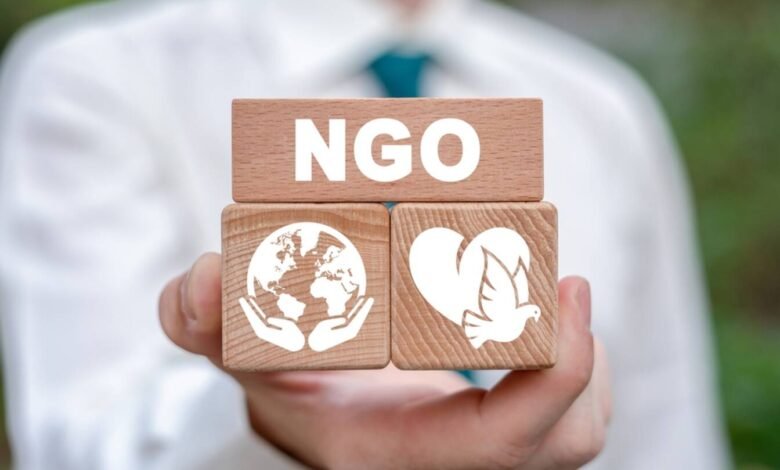World NGO Day: Advancing Children’s Rights and Well-being

Every year on February 27, the world observes International NGO Day, a time to recognize the invaluable contributions of non-governmental organizations (NGOs) in building a more just, sustainable, and equitable world. NGOs serve as a lifeline for communities, filling gaps where governments fall short and advocating for the most vulnerable populations. Among the most pressing global concerns is the well-being of children, who face staggering challenges such as poverty, lack of education, malnutrition, child labor, trafficking, and discrimination. This day serves as a call to action to protect children’s rights and invest in their future.
The Harsh Reality: Challenges Faced by Children Worldwide
Children across the globe continue to face severe injustices, many of which threaten their survival, development, and dignity. According to UNICEF’s 2023 report:
- 333 million children worldwide live in extreme poverty (less than $2.15 a day), depriving them of basic necessities like food, shelter, and healthcare.
- 244 million children are out of school, missing out on the education essential for breaking the cycle of poverty.
- 45 million children under the age of five suffer from wasting, the most severe form of malnutrition, leading to lifelong health complications and even death.
- 160 million children are engaged in child labor, often in hazardous conditions that compromise their physical and mental well-being.
- Millions of children fall victim to child trafficking and exploitation, suffering abuse, violence, and forced labor.
These figures underscore the urgent need for sustained, targeted interventions that prioritize children’s rights and well-being.
The Role of NGOs in Advancing Child Welfare
NGOs have been at the forefront of addressing these crises, advocating for policies that safeguard children’s rights, and providing direct services to improve their lives. The Convention on the Rights of the Child (CRC), adopted by the United Nations in 1989, established a legal framework for children’s rights, and NGOs play a crucial role in ensuring these rights are upheld. Their efforts span across multiple areas:
1. Access to Quality Education
Education is a fundamental right that lays the foundation for a child’s future. NGOs such as Save the Children and Room to Read work to provide access to schooling, promote inclusive education, and equip teachers with better training. In 2023, Save the Children reached 2.7 million children with education programs and trained 500,000 teachers to support child protection and learning development.
2. Combating Child Malnutrition and Improving Healthcare
Malnutrition is one of the leading causes of child mortality. NGOs like Action Against Hunger provide life-saving food assistance and nutritional programs to millions of children suffering from acute malnutrition. Through their interventions, the organization has treated over 2.2 million malnourished children in the past year alone.
3. Preventing Child Labor and Exploitation
Child labor remains a pervasive issue, especially in regions with high poverty rates. NGOs such as World Vision and CRY (Child Rights and You) actively work to rescue children from exploitative labor conditions and reintegrate them into school programs. These organizations also advocate for stronger labor laws and enforcement mechanisms.
4. Protecting Children from Trafficking and Abuse
Child trafficking and exploitation rob children of their dignity and future. Organizations like ECPAT International and International Justice Mission (IJM) collaborate with law enforcement agencies to rescue victims, provide rehabilitation, and prosecute traffickers. In 2023 alone, IJM helped free over 10,000 children from human trafficking and abuse.
5. Ending Child Marriage
Each year, 12 million girls are married before the age of 18, exposing them to risks such as domestic violence, early pregnancy, and school dropout. NGOs like Girls Not Brides campaign against child marriage through education, community engagement, and policy advocacy, striving to dismantle the cultural and economic pressures that drive early marriage.
The Way Forward
As we observe World NGO Day, it is imperative to strengthen global efforts to advance children’s rights and ensure every child has the opportunity to thrive. Governments, NGOs, and individuals must work together to:
- Increase investment in child welfare programs: Sustained funding for education, healthcare, and protection initiatives is critical.
- Strengthen legal frameworks: Governments must enforce stronger policies to combat child labor, trafficking, and exploitation.
- Promote public awareness and advocacy: Communities must be educated on children’s rights and the importance of protecting vulnerable children.
- Encourage partnerships between NGOs and governments: Effective collaboration can maximize impact and drive long-term change.
- Empower youth and communities: Children themselves must be given a voice in shaping their future through participation in leadership and advocacy programs.
Our precious Children are not the future; they are the present. Their well-being, education, and protection must remain at the core of global development efforts. This World NGO Day, let us recognize and support the tireless work of NGOs dedicated to advancing children’s rights and building a world where every child, regardless of their circumstances, can lead a dignified, fulfilling life.





